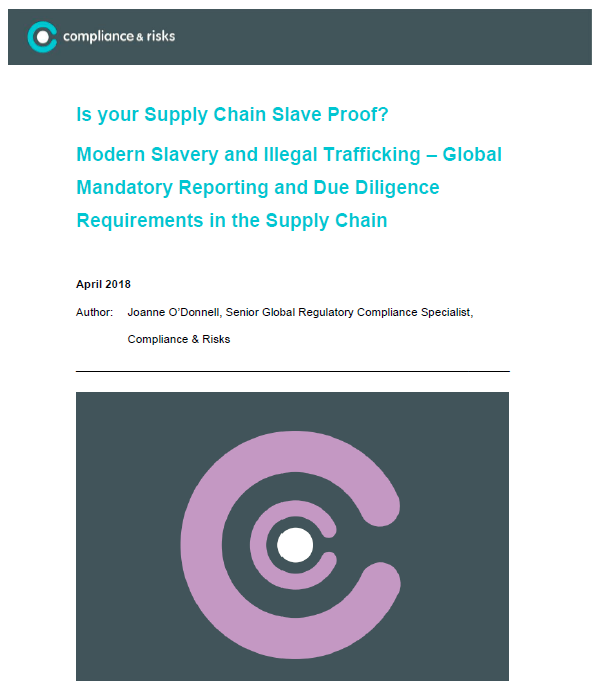by Joanne O’Donnell
In today’s global economy, multinationals face an increasingly complex and evolving legal environment, requiring their compliance functions to constantly adapt. As tackling modern slavery and illegal trafficking is fast becoming a high priority across the world, the changing regulatory landscape makes monitoring of and compliance with legislation particularly challenging for all businesses.
This paper will give an overview of the current regulatory environment as regards modern slavery and illegal trafficking in the supply chain. It will also review emerging laws in the area in order to determine how these may impact your business and how developing laws are becoming part of a new global standard. A review of both existing and emerging legislation, and the manner in which country-by-country legislation tie together, will enable your business to navigate the changing regulatory environment in an efficient, effective manner and thus highlight the need for preventative measures and strong compliance structures.

